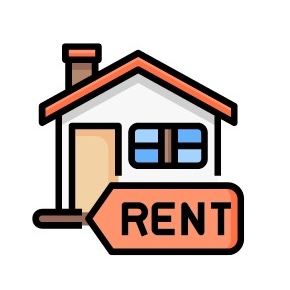Landlord's Guide to Handling Unpaid Rent
Listen to the blog audio:

Q1|When can the right to 'terminate/forfeit the tenancy' be exercised?
If rent remains unpaid for more than 15 days after it is due, the law generally presumes that the landlord can exercise the right to forfeit/terminate the tenancy; however, if the tenant pays all outstanding rent before the landlord formally takes back the property, they can usually 'save the tenancy'.
Once overdue, the landlord can first send a rent demand + breach warning letter (specifying the amount, deadline, and consequences) and keep a record of delivery to facilitate subsequent legal proceedings.
Q2|Did you want to terminate the tenancy but first discovered that the tenancy agreement and CR109 haven't been stamped?
Stamping the tenancy agreement and submitting CR109 are prerequisites for rent recovery.
- Stamping: The tenancy agreement must be stamped at the Inland Revenue Department within 30 days of signing; an unstamped tenancy agreement cannot be used as evidence in civil proceedings and cannot be "accepted or processed" by public officers. It is recommended to use e-Stamping online for a simple and convenient process.
- CR109 (Notification of Tenancy for Domestic Premises): According to the Landlord and Tenant (Consolidation) Ordinance, if CR109 has not been endorsed by the Commissioner of Rating and Valuation, the landlord cannot initiate legal proceedings to recover rent; it must be submitted free of charge within 1 month of signing the tenancy agreement, and can be submitted later with a fee if overdue.
Q3 | What are the methods for dealing with unpaid rent?
Lands Tribunal: Repossession + Rent Recovery + Mesne Profits
This is the most common channel; you can simultaneously apply for repossession of the unit, recovery of unpaid rent, and mesne profits. The Tribunal has the authority to issue orders regarding rent, mesne profits, and disposal of abandoned property together.
Small Claims Tribunal (SCT): Only for recovering money, not for repossessing property
Suitable for monetary claims where the unpaid rent ≤ HK$75,000; cannot obtain a repossession order, and to repossess the property, you must still go through the Lands Tribunal separately.
For detailed procedures on "repossession", please refer to Landlords vs. Tenants from Hell: From Behavioral Characteristics to Practical Strategies for Rent Recovery and Repossession.Q4|Can you "change the lock/cut off water and electricity" to evict someone?
Not feasible. The lease (even if not explicitly stated) implies a "quiet enjoyment" promise, meaning the landlord cannot interfere with the tenant's normal use of the property; cutting off water and electricity, changing locks, etc., typically violate this promise and carry high risks.

-3.jpeg?locale=en)

-2.jpeg?locale=en)
-2.jpeg?locale=en)
-2.jpeg?locale=en)

-3.jpeg?locale=en)
-3.jpeg?locale=en)
-3.jpeg?locale=en)